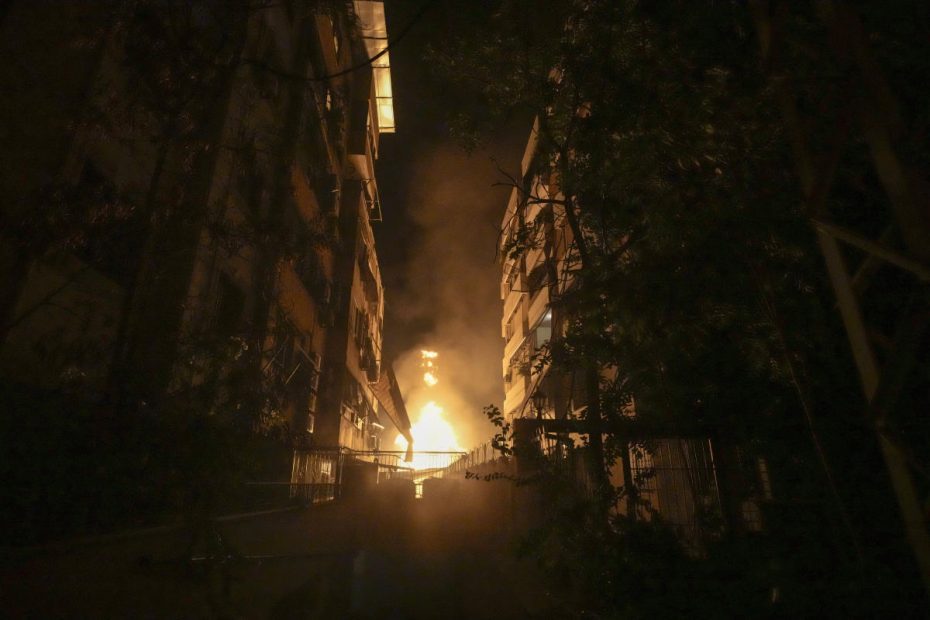DUBAI, United Arab Emirates (AP) — A prominent general of Iran's paramilitary Revolutionary Guards was killed in an Israeli airstrike that killed Hezbollah leader Hassan Nasrallah in Beirut, Iranian media reported Saturday.
The killing of General Abbas Nilforushan marks the latest casualty suffered by Iran as the nearly year-long war between Israel and Hamas in the Gaza Strip teeters on the brink of becoming a regional conflict. His death further increases pressure on Iran to respond, even as Tehran has signaled in recent months that it wants to negotiate sanctions with the West that will crush its economy.
Nilforushan, 58, was killed on Friday during the strike in Lebanon that killed Nasrallah, the state-run Tehran Times newspaper reported. Ahmad Reza Pour Khaghan, deputy head of Iran's judiciary, also confirmed Nilforushan's death and described him as a “guest for the people of Lebanon”, according to state news agency IRNA.
Khaghan also reportedly said that Iran has the right to retaliate under international law.
Nilforushan served as the Guard's deputy commander for operations, a role overseeing ground forces. It was not immediately clear what he was doing in Lebanon on Friday. The Guard's Quds Force has armed, trained and relied on Hezbollah for decades as part of its strategy to rely on regional militias to counter Israel and the United States.
Nilforushan, like other Guard members who view Israel as Iran's main enemy, has long mocked and criticized the country.
“The Zionist regime has many ethnic, cultural, social and military divisions. It is in a vulnerable and ruinous status more than before,” Nilforushan said in 2022, according to an IRNA report.
The U.S. Treasury Department sanctioned Nilforushan in 2022, saying he led an organization “directly responsible for suppressing protests.” The sanctions came amid months of protests in Iran over the death of Mahsa Amini following her arrest for allegedly not wearing her headscarf, or hijab, as ordered by police. At the time, Nilforushan accused Iran's enemies abroad of fomenting the demonstrations led by Iranian women, who challenged both the mandatory hijab and the country's theocracy.
Nilforushan also served in Syria, supporting President Bashar Assad in his country's decades-long war that emerged from the 2011 Arab Spring. Like many of his colleagues, he began his military career in the Iran-Iraq war in the 1980s.
In 2020, Iranian state television called him a “comrade” of General Qassem Soleimani, the head of the expeditionary Quds Force who was killed in a US drone strike in Baghdad that year.
Nilforushan's death comes as Iran has signaled in recent months that it wants to change course with the West after years of tensions following then-President Donald Trump's unilateral withdrawal of America from Tehran's nuclear deal with the world powers in 2018.
In July, Iranian voters elected reformist President Masoud Pezeshkian after a helicopter crash that killed President Ebrahim Raisi, a hardline protege of 85-year-old Supreme Leader Ayatollah Ali Khamenei.
Although critical of Israel, Pezeshkian has maintained that Iran is willing to negotiate over its nuclear program, which now enriches uranium to near weapons-grade levels. Although Iran has been able to sell oil abroad despite sanctions, this has likely been at a steep discount and energy prices have fallen further in recent weeks.
Meanwhile, Iran continues to threaten to retaliate for the assassination of Soleimani and the suspected Israeli killing of Hamas leader Ismail Haniyeh in Tehran in July. Iran has not yet explained why it has not yet struck, although an unprecedented direct strike it launched against Israel in April failed to seriously damage any key target.
___
Associated Press writer Nasser Karimi in Tehran, Iran, contributed to this report.

